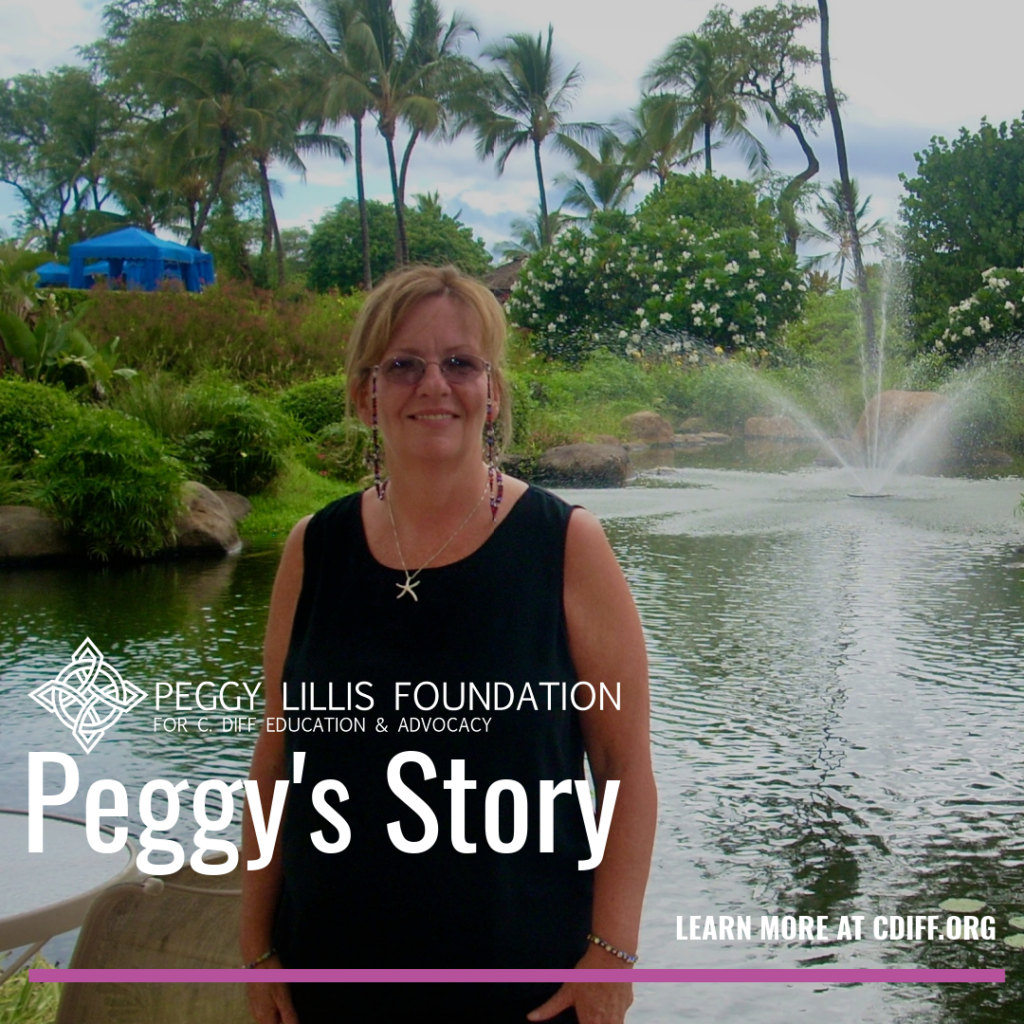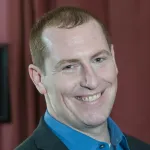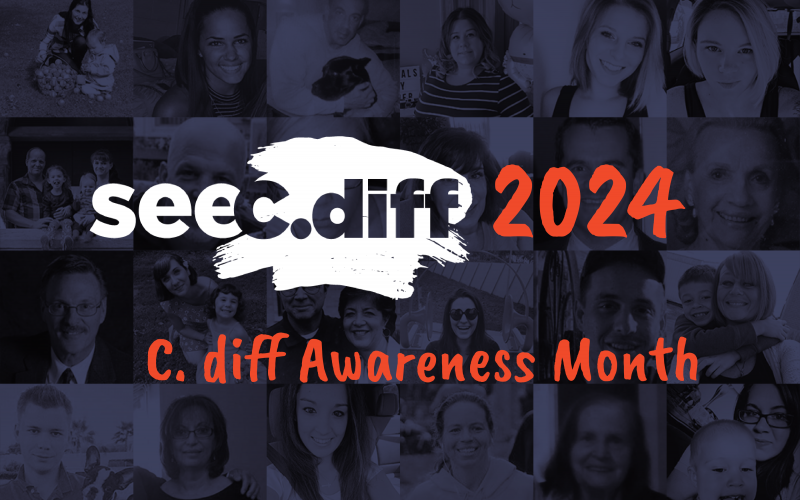
Other Categories
This was adapted from my 2024 National C. diff Advocates Summit speech.
My mother was many things. A young woman who had an unplanned pregnancy (me). The third of nine siblings from a working-class Irish-Catholic family. A single parent who relied on welfare, her large family, and her community to help care for me and my brother. A kindergarten teacher who cared deeply for her students. The godmother to twelve people. A trusted confidante to many people, including many of our friends. These are all parts of her biography you may be familiar with. But she was also a savior.
Now, as a lapsed Catholic, I would never say she was a savior like Jesus. Jesus wishes he were as cool as Peggy Lillis. So, what do I mean when I say Mom was a savior? It’s not just that she stood up for her gay son at a time when being queer was verboten. Nor is it that she fought for her younger son, who has dyslexia and needed help to succeed at school. That’s just good parenting.
But Mom went far beyond that; she saved people from real danger, took on bullies others feared, and gave shelter to those who needed it. Honestly, I cannot tell you how many people slept on our couch. I want to share two stories from her life and how they have inspired me and others.
The beginnings of a savior
The first time my mother saved someone, she was fifteen years old. One summer afternoon, her seven-year-old brother was playing with a lighter under the bed in the middle room of the top floor. He inadvertently set the box spring on fire and, being seven, didn’t tell anyone. Eventually, my grandmother smelled the smoke, and she and Mom ushered all the younger kids out while a neighbor called the fire department. Once outside, my grandmother realized in horror that her youngest daughter, my Aunt Mary, was still in the house. Worse, she was in the bedroom at the end of the hall past the room now entirely in flames.
Mom didn’t hesitate. She ran into the house, up the stairs, and paused at the top, seeing flames beginning to leap through the open door. Hearing Mary’s cries, Mom ran down the hallway, grabbed her sister out of her crib, and snuggled her tight to her body. She ran back through the flame and smoke until she reached her family on the other side of the street. Firefighters arrived at this point, took Mary from Mom, and pulled her aside to check her over. Her long brown hair was singed, and the fake eyelashes she’d put on were now melted to her eyelids. Otherwise, she and Mary were unharmed. Today, Mary is 58 years old and has three adult sons, all good men.
When I was 22, I went to England, my first time traveling abroad. One night, while I was away, my friend Cayla called. Mom had known Cayla since we were ten. Upset, Cayla asked if I was home. Mom reminded her that I was in England and asked what was wrong.
Cayla: Can I spend the night at your house? Christopher is being mean to me. (Christopher was Cayla’s boyfriend who had become increasingly emotionally abusive.)
Mom: Why don’t you tell him to leave your house?
Cayla: I can’t. I’m afraid of him.
Mom: Well, I won’t let you be afraid in your own home. Stay put. I’m coming over.
Mom told Liam, who was 18, what was happening and asked him to come with her “just in case.”
When they arrived at Cayla’s apartment, my mother turned to Liam and said: “You hang back because if I hit him, it’s self-defense, but if you do, it’s assault.”
Cayla answered the door, visibly upset. Mom told her to hang out in the hallway with Liam while Mom handled Christopher. To give you a visual, at 42, Mom was a curvy 5’6” with shoulder-length brown hair and growing kindergarten teacher energy – unless you pissed her off. Christopher was a slim, muscled 6’2” with bleach blond hair and a permanent sneer.
Being a single mother, Mom had long slept with an aluminum baseball bat under her bed. When Liam was about 13, he had written “peacemaker” on it in permanent marker. She brought the bat with her, “just in case.”
She entered the apartment and turned the corner into the living room, where Christopher was lounging on the couch in his boxer shorts, talking on the phone. Mom looked at him and smacked the bat on the floor three times to get his attention. Christopher looked up at her with his eyes wide.
Mom said: “YOU. Get up. Get your crap. And get the HELL out!”
Christopher yelled into the phone, “Holy shit! There’s a crazy lady here with a bat. Call the police.” And hung up.
Mom said: “We don’t need the police. I won’t hurt you if you get your stuff and leave.”
She watched while Christopher gathered his things and got dressed. Meanwhile, the police arrived.
With Liam and Cayla now in the apartment, Mom went into the hallway to talk to the cops. With two brothers who were cops, she explained that this big guy was bullying her son’s friend and refused to leave her house. The cops then entered the apartment and escorted Christopher out.
Continuing my mother’s legacy
These are just two examples of my mother being a savior. For me, they exemplify not just bravery but her deep and abiding love for other people. Though my mother was part of the “Me Generation,” she was often selfless. My mother was the center of our large extended family; she made friends and built community easily. One of our Peer Support volunteers recently confided in me that many of the people she supports express suicidal ideation. There is no doubt that C. diff is a painful, embarrassing, and tortuous disease. But we can bear almost anything if there is hope and if we have a community. A therapist I saw for most of my 20s used to say, “The only difference between anxiety and excitement is support.”
From AIDS to breast cancer to disability rights, large, national, community-based movements are the only way that fundamental change has occurred in America. This is also true of civil rights and marriage equality. Each of you in this room, and many who couldn’t be with us, are the nucleus of that community and movement. Whether you’re a physician, a pharmacist, a C. diff survivor, or a family member, you are playing a crucial role in changing how C. diff and resistant infections are surveilled, prevented, and treated. Whether you work in a hospital, a government agency, a diagnostics company, a biotech firm, or a pharmaceutical company, you can be a savior. All you need to do is be like Peggy: protect the vulnerable, stand up to bullies, and shelter those who need it.




Leave a Reply